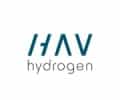Successful test of hydrogen fuel cell with maritime control system

HAV Hydrogen and Norwegian Electric Systems (NES) have completed a successful laboratory test of a hydrogen fuel cell in combination with a maritime control system. The successful test is a continuation of the FreeCO2ast project that has developed a high-capacity hydrogen-based energy system that can be retrofitted onboard ships.
“This brings us another step closer to realizing our objective of making the first commercial delivery of a fully integrated hydro-gen-based energy system for ships,” says Kristian Osnes, managing director of HAV Hydrogen.
The scope of the project was to test NES’ proprietary control system and interface with a hydrogen fuel cell and associated drives, including validation of the system design, software and hardware. In addition, control, safety systems and barriers for the integration of the fuel cells were tested.

Image of Hydrogen-fueled Multi-Purpose Vessel (D/W 17,500 M.T.)
(courtesy of J-ENG)
In the test, the hydrogen fuel cell was benchmarked against a meticulously simulated load profile, developed using advanced simulation tools from the ground-breaking FreeCO2ast project.
“Securing a robust interface between the hydrogen fuel cell and the control system is normally a complex and challenging task. We made it work in a short space of time, which is something we are very proud of,” says Siv Remøy-Vangen, managing director of NES.
Both HAV Hydrogen and Norwegian Electric Systems are subsidiaries of Norway-based provider of low and zero emission mari-time technologies, HAV Group ASA.
The successful test was conducted in cooperation with Clara Venture Labs, hosted by Sustainable Energy at its Energy House test facility at Stord, Norway. Independent research institute Sintef Ocean, which developed the test’s simulation model, was also project partner.

AiP Handover Ceremony
From left
Mr. Hiroyuki Motoya, Executive Officer, General Manager of Design Department, Onomichi Dockyard
Mr. Terumi Moriguchi, Managing Executive Officer, MOL Drybulk
Mr. Yoshihiko Sugimoto, General Manager, Technical Division, Technology Innovation Unit, MOL
Mr. Masaki Matsunaga, Corporate Officer, Director of Plan Approval and Technical Solution Division, ClassNK
Mr. Hideaki Murata, Associate Officer, General Manager, Marine Machinery Business Division, Kawasaki
Mr. Seiji Shindo, Representative Executive Managing Director of Technology, J-ENG
The test is a continuation of the FreeCO2ast project which has developed a high-capacity hydrogen energy system that can be retrofitted onboard one of Havila Kystruten’s coastal cruise ships.
“This test was an important milestone, providing valuable learning for the future development of a large-scale hydrogen-based energy system,” concludes Kristian Osnes.
The FreeCo2ast project is supported by the Norwegian Research Council and Innovation Norway. Major project partners include Havila Kystruten and HAV Group’s subsidiaries HAV Design, Norwegian Electric Systems and HAV Hydrogen, in addition to the research institutions Sintef Ocean and Clara Venture Labs.
Source: HAV Hydrogen and Norwegian Electric Systems (NES)
